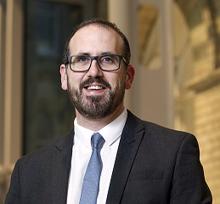Matthew Homewood discusses the SQE
The introduction of the Solicitors Qualifying Examination (SQE) has been much discussed by education providers, students and firms since the Solicitors Regulation Authority (SRA) announced its plans to reform the future of legal training. Whilst there remain a large number of ‘known unknowns’, the recent announcement of the SRA on the 8th November has added clarity to understanding in some important areas, including the date of its introduction.
It has now been confirmed that the SQE centralised assessment will be introduced in September 2021, although transitional arrangements will mean that some students may still qualify under the existing regime until 2032.
The structure of the SQE will be in two parts: SQE Stage 1 and SQE Stage 2. SQE Stage 1 will primarily test the application of legal knowledge across three examinations using multiple choice questions, whilst SQE Stage 2 will test practical legal skills such as interviewing, advocacy and drafting.
Indicative costs for the SQE assessments have now been announced with the total estimated costs of Stage 1 and 2 being £3,000 to £4,500. Although it is clear that students will be required to pass SQE Stage 1 before undertaking the SQE Stage 2 assessments, it is important to note that the SRA are not prescribing the way in which students prepare for the assessments. So long as students have an undergraduate degree (or equivalent), they will be eligible to undertake the SQE. However, it is clear that the nature and quality of the preparation undertaken will be a key factor in a student’s chances of success, and indeed, in their readiness and preparedness for a successful future in the legal services market.
In addition to passing the SQE, students will be required to undertake two years’ qualifying work experience. This can be with up to four employers and can include experience gained in provider run legal advice centres such as the one at Nottingham Law School (NLS). Students can then apply to the SRA for qualification.
The SQE both poses challenges and provides opportunities for law firms. The first challenge for any firm looking at SQE is the logistical one of fitting the new examinations into its existing recruitment cycle and training programme. A firm which has two graduate recruitment intakes each year to meet its business needs, may find that a centralised examination schedule is not aligned to its own training timetable. Whilst timetabling is relatively straightforward to fix, a more pressing challenge for firms is the extent to which students are likely to be “desk ready” when they arrive at the firm.
Although there is no formal requirement for both SQE 1 and SQE 2 to have been completed ahead of a student joining a law firm, the reality is that firms are used to students walking through the door with a thorough grounding in procedure and processes as part of the LPC. In addition, LPC electives are currently sufficiently sophisticated to enable students to enter a firm with a detailed understanding of specialist areas of law so that they can take a hands-on approach to the work of the firm from day one. Whilst high level multiple choice questions will thoroughly test a student’s knowledge of the foundation subjects, even if a student has completed SQE 1 ahead of joining a firm, it is clear that there will be a training gap that the firm will have to address.
So how will firms do this? Will firms want to make up the difference with a programme of intensive in-house training, or will they prefer to see students who have studied and passed a “pre-SQE” quasi-LPC? The pre-SQE approach may seem more appealing to firms if the reality of in-house training means that students must take time out from fee-earning, as this will have a potential cost to the firm’s business. Further costs may arise if students are recruited and then fail to pass their examinations first time; this element of uncertainty makes it difficult for a firm to determine how many qualified solicitors it will have at the end of the training period.
SQE nevertheless brings firms some real opportunities, providing a catalyst for firms to re-think their approach to training. With a new training framework in place, firms are free both to conceptualise the trainee of the future and to embed into new training programmes those innovations and skills that will equip their students to face the emerging workplace challenges of the twenty-first century, including disruptive technologies and big data. Firms also have an opportunity to jettison those parts of their curriculum that are out-dated and less relevant and to explore how they could do fewer things better (so reducing the content overload that students are inevitably faced with on the LPC) and introduce new more relevant material. Opportunities for wholesale reflection and innovation are rare: the imposition of SQE provides such an opportunity and so should be welcomed and seized.
As a large, innovative, forward-thinking and full service law school, NLS recognises and embraces the opportunities that lie ahead. We at NLS are well-prepared and uniquely placed to meet these changes, building upon our reputation with firms and students alike in delivering excellence in legal education. We have already welcomed our first undergraduate cohort onto our market-leading LLB which incorporates an Applied Legal Knowledge pathway to prepare students for SQE Stage 1 and look forward to revealing details of our flexible postgraduate portfolio of SQE courses. Informed by discussion with firms and delivered by our TEF Gold faculty of practitioners and academics, students studying at NLS will continue to be provided with the specialist knowledge, skills and insight into the profession that will enable them to flourish in the legal sector.
Dr Paula Moffatt Director of External Engagement at Nottingham Law School – is a co-author of this article.












